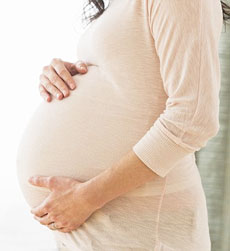fitness news
![]() ,
,![]()
Font size Women’s Health
Israeli Health Ministry considers cutting fertility treatment subsidies for older women
– Reported, 04 June, 2012
 May aid treatment for a third child, but limit subsidized attempts by older, childless women.
May aid treatment for a third child, but limit subsidized attempts by older, childless women.
The Health Ministry is considering subsidizing fertility treatments through the third child and canceling subsidies for older women who face problems becoming pregnant.
Medical plans provides by HMOs in Israel subsidize in-vitro fertilization procedures up to the age of 45, and through the second child; this support does not set a limit to the rounds of treatment, and its scope exceeds that of Western countries, which limit the number of rounds of fertilization treatment subsidized by public funds. The new initiative would institute a change in the current formula of support, increasing subsidies for another, third child but limiting funds to women over 43 trying repeatedly to get pregnant for the first time.
The basis for the possible change is a review undertaken by the Health Ministry pointing to the decreasing possibilities of pregnancy via fertility treatments as a woman’s age increases. Up to age 35, the chances of becoming pregnant via in-vitro procedures are roughly 40% on each attempt; for the next seven years, the probability drops to 25%; at the age of 43, the prospects range from 5%-10%; whereas chances after that age are negligible, less than 1% on each attempt.
Nonetheless, Israeli policies allow for public funding for fertility treatments up to the age of 45. Estimates hold that a pregnancy secured in fertility treatment for women aged 44-45 costs the state millions of shekels, once dozens of rounds of unsuccessful treatment are taken into account.
Data bank backing
Recently, the Gertner Institute for Epidemiology and Health Policy Research has been backing the establishment of a long-planned data bank to consolidate information compiled at 25 fertilization centers in Israel. The data bank would facilitate monitoring of the number of fertility treatments received by a particular woman who arrives at a new center and seeking another round of treatment.
Initiatives to limit subsidies to fertility treatment have been broached in the past by the Finance Ministry and other government agencies. Yet up to now, all such proposals have been quashed by the Knesset. The current proposal is somewhat different in that it does not recommend a curtailment of fertility procedures for the purpose of cutting back on public expenditure; instead, it proposes re-distributing funds for such procedures from fertility treatment with little chance for success, to rounds of treatment that are statistically much more promising. Attorney Mira Harel, the Health Ministry’s legal adviser, says this “topic comes and goes. A decade ago there was an effort to incorporate changes in funding for fertility treatment in the state budget’s arrangements law. In my opinion, winning approval for the current proposal will not be easy, since some women will claim that its implementation would discriminate against them, and that if investments had been made in treatment for them, they would have been able to have a child. In Israel, having a child is a top priority for many people, and so it is hard to institute restrictions in this area.”
The Israel Association for Fertility Research has recently backed a different proposal which would impose a limit on the number of rounds of fertility treatment available to older women, but would also provide funds for women who want to freeze eggs for possible future use. Since January 2011, women between ages of 31 and 40 who want to delay pregnancy owing to career considerations have been able to freeze eggs for future use. However the cost of such a procedure is extremely high – more than NIS 10,000. Many physicians warn that the chances of becoming pregnant by such a frozen-egg procedure can be low, and that public funding for such a future-use option might raise false hopes.
Dr. Martha Dirnfeld, chairwoman of the fertility association and director of an in-vitro fertilization unit at Carmel Medical Center, says: “Much money is wasted on women aged 44 and 45 who go through a number of failed fertility treatments whose prospects for success are negligible. This money can be re-routed for treatment involving the freezing of eggs and egg donation.”
Dirnfeld argues that the rationale behind the current initiative to provide support for fertility treatments through a third child is questionable – 85% of Israelis, she points out, have insurance policies that provide discounts for fertility treatments after the second child.
For more Israel News Click Here